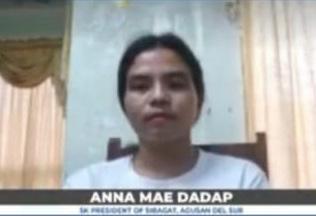POULTRY: FARMERS’ HOPE ON HEAVY RAINS IN SURSUR TOWN Rice and corn production have been the primary livelihoods of the Cancavan Corn Growers Association (CCGA), a Special Area for Agricultural Development (SAAD)funded farmers’ group in Carmen, Surigao del Sur. The first half of the year beginning March is for corn planting while rice is November. While these practices are fixed in the community, they leave some farmers idle when heavy rainfall floods the lowland areas. The climate in Surigao del Sur is characterized by yearround rainfall with annual precipitation of 4175 mm. This phenomenon results in light to moderate flooding beginning in November and ending in June that only rice can withstand, according to association president Rezie Mollaneda. “In Cancavan, most lowland areas suitable for rice and corn
By Mark Angelo Pineda are flooded by the end of the year. This is the reason why we readily take any opportunity, be it producing other crops in upland areas or raising animals, to support our families’ needs,” shared Mollaneda. This is where the Native Chicken Production Project of the Special Area for Agricultural D e v e l o p m e n t (SAAD) Program of the Department of Agriculture - Caraga has proven useful. Part of assisting small farmers in establishing income-generating livelihoods, the program introduces small farmers to manageable and sustainable livelihoods that can endure the driest or wettest days. In December 2019, CCGA received 90 native chickens, a poultry house with a perimeter fence, feed, incubator, water plastic drum, and drugs and biologics
all amounting to Php 516,000.00. As of August 2020, they have earned Php 19,529.00 from eggs and chicks’ sales. Rightfully, it is poultry that assures CCGA members have income even on rainy days. Making it work Introducing poultry in a corn-dominated area is not far-fetched; chickens feed on corn, after all. But because the project was relatively new to the community, some locals had their share of reservations. Mollaneda recounts that incorporating poultry into their daily routine proved to be challenging. “At the start, the majority of CCGA members were reluctant. Though government support is not new to us, this is the first poultry in the community. It’s not entirely laborious, but it took us time to get the hang of it.” October 10-16, 2020 |
41






